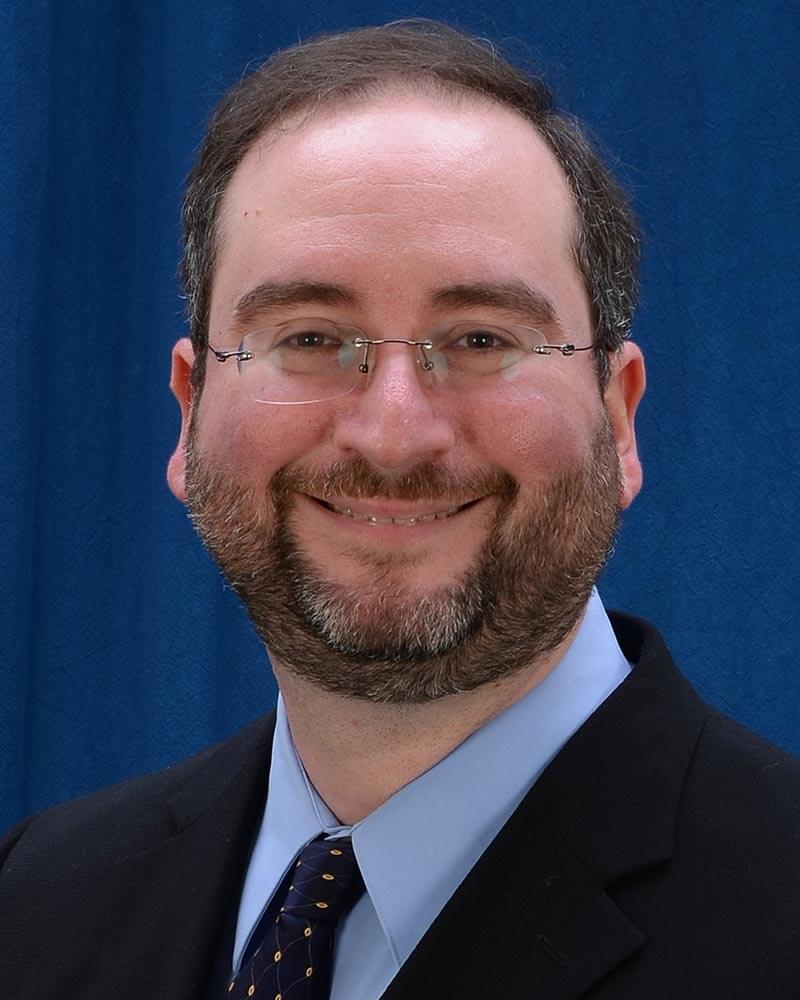Virtual Professional Development Courses (webinars)
All times listed are in CENTRAL TIME ZONE
Tuesday, October 15 and Thursday, October 17, 2024, 10:00 AM – 2:30 PM CDT
1V. Plant and Arthropod Biosafety Basics
Plant research is the backbone of both genetically modified, disease resistance, and breeding of both academic and biotechnology research. Attendees will discover what is needed to design a greenhouse and lab that will contain genetically modified material and insects as well as an overview of Arthropod Containment Levels. This course will feature a diverse array of advanced scenarios and interactive exercises showcasing the spectrum of biological, genetically modified, arthropod, and other risks and hazards commonly encountered in greenhouses, fields, and laboratories supporting plant research. Attendees will be guided through strategies for identifying potential hazards, assessing the magnitude and extent of induced risks and cost, and developing effective control measures to protect the safety of workers, plants, and the environment. The course employs “real world” examples to improve understanding of greenhouse and field operations.
Objectives:
- Review risk assessment techniques as they apply to research involving genetically modified (GM) plants
- Identify and apply effective hazard and exposure control strategies into GM, arthropod lab, greenhouse design, and research facility management procedures
- Summarize strategies for safety professionals to collaborate with plant program personnel in addressing common research safety and environmental issues
Suggested Background: None
Target Audience: All Safety Professionals, All Biosafety Professionals
Audience Level: Basic
Course Length: 8 hours (two 4-hour live sessions with a 30-minute break each session)
COURSE FACULTY
CONTACT HOURS
This course has been approved for 1 CM points toward RBP/CBSP recertification. ABSA International is approved as a provider of continuing education programs in the clinical laboratory sciences by the ASCLS P.A.C.E.® Program. This course is approved for 8.50 P.A.C.E.® contact hours.
Monday – Friday, October 21-25, 2024, 10:00 AM – 11:35 AM CDT
Registration is closed for this webinar. You may purchase the recording.
2V. Infectious Substance Shipping Program Management
This course is tailored for individuals responsible for establishing and overseeing infectious substance shipping programs within their facilities. This webinar series aims to assist institutions in developing robust shipping programs tailored to their needs. Course elements include: training; written policies; written descriptions of program plans; transport and shipping specific SOPs; safety and security plans; emergency response plans; logistics and supplies; carrier selection and support; MOUs and authorizations; access control and personnel assurance. The instructor will provide a detailed and comprehensive shipping program assessment and implementation guidance document. Attendees will receive an introduction to this document and step-by-step guidance on its completion. By completing the assessment document, attendees will conduct a thorough review to identify areas for improving existing shipping programs. This interactive, instructor led, web-based training will invite attendees to share examples of how these elements are addressed at their own institution.
Objectives:
- Evaluate external and internal requirements or conditions that impact shipping policies and program components at a facility, emphasizing the relevance of international regulations (ICAO TI), international standards (IATA DGR), and other guidance (CDC, WHO, CWA) for developing a robust shipping program
- Recognize the components of a shipping program and utilize provided tools and templates to assess current shipping program elements, identifying opportunities for improvement
- Compare and contrast various approaches to setting up a shipping program (centralized, decentralized, hybrid), and gain an understanding of the advantages and disadvantages associated with each
Suggested Background: IATA Infectious Substance Shipping Certification
Target Audience: Experienced Biosafety Professionals, Infectious Substance Shipping Managers & Trainers
Audience Level: Advanced
Course Length: 8 hours (five 95-minute live sessions)
Within 10 business days of purchasing the recording, you will be added to the course on the ABSA International Training Site. If you have already taken ABSA courses, then you will receive an enrollment notification. If you are a new user, you will receive an invitation to create your account on the ABSA International Training Site. Once the account is created, you will see the course on your course dashboard. You will have 60 days to complete the course.
COURSE FACULTY
COURSE FEES
ABSA Members: $720 USD
Nonmembers: $820 USD
CONTACT HOURS
This course has been approved for 1 CM points toward RBP/CBSP recertification. ABSA International is approved as a provider of continuing education programs in the clinical laboratory sciences by the ASCLS P.A.C.E.® Program. This course is approved for 8.50 P.A.C.E.® contact hours. The links to the various invitations for the course will be unique to the user and cannot be shared. The links to the various invitations for the course will be unique to the user and cannot be shared. The links are for single, individual use only.
Friday, September 13, 2024, 11:00 AM – 3:30 PM CDT
3V. Introduction to Biosafety in the Clinical Setting
The clinical setting poses a different environment than research laboratories. This course provides foundations for applying biosafety concepts in the clinical setting. Course topics include common issues and lessons learned pertaining to clinical facilities including pharmacies, laboratories, clinics, infusion areas, ORs, and waste disposal facilities; PPE, disinfection, risk assessments, and safety practices in the clinical setting; speaking biosafety to doctors, nursing staff, pharmacy staff, infection prevention and control, diagnostic microbiology lab personnel, and hospital EHS staff; applying NIH Guidelines and the BMBL to the clinical setting; gaps in oversight of research safety for clinical trials, and risk assessments for unconventional or highly specialized delivery mechanisms for biologics. The course will conclude with a focus on clinical trials including the role of an IRB and how it can overlap with an IBC; the process for investigational products to obtain FDA approval to be deemed as safe and effective therapeutics; and the evolving regulatory environment in the U.S. for biologics such as vaccines, regenerative medicines, and gene therapy. The course is designed to be highly interactive with discussions, surveys, and group exercises.
Objectives:
- Apply biosafety principles in the clinical setting
- Perform risk assessments and identify gaps in occupational safety in the clinical setting
- Discuss the regulatory oversight structure for clinical trials and the developmental process for investigational products
Suggested Background: None
Target Audience: All Safety Professionals, New Biosafety Professionals, Laboratory Workers, Research Administrators, Clinical Professionals
Audience Level: Basic
Course Length: 4 hours (one 4-hour live session with a 30-minute break)
COURSE FACULTY
CONTACT HOURS
This course has been approved for 0.5 CM points toward RBP/CBSP recertification. ABSA International is approved as a provider of continuing education programs in the clinical laboratory sciences by the ASCLS P.A.C.E.® Program. This course is approved for 4.50 P.A.C.E.® contact hours.
Tuesday, September 17, 2024, 11:00 AM – 3:30 PM CDT
4V. Bio-Hazardous Drugs
The anticipated implementation of United States Pharmacopeia (USP) 800 in healthcare created a new resolve to conduct thorough risk assessments of healthcare formularies. The role of this assessment was to identify the hazards posed by these drugs, to evaluate the exposure risks associated with these hazards, and to determine the potential health consequences of both acute and chronic exposure. Most healthcare facilities that conducted these risk assessments utilized a risk matrix that incorporated criteria commonly used in toxicology to evaluate exposure to chemicals. As the pharmaceutical industry quickly turns to novel biologics to treat and/or correct disease, a risk assessment of the biological hazards associated with these novel biologics is warranted. This course will provide information on these biologics; explore the known and anticipated biological properties of each; discuss the potential these biologics have to cause infections, to be shed, to contaminate the environment, and to be transmitted to others; and will cover the pertinent controls needed to contain these biologics, to prevent inadvertent exposure to these materials, to remove them from the environment, and to ensure staff and patients are appropriately educated.
Objectives:
- Define a hazardous drug and a hazardous biologic
- Recognize the hazards, exposure risks, and health consequences posed by these hazardous drugs and hazardous biologics
- Describe pertinent healthcare and pharmacy standards concerning hazardous drugs and hazardous biologics
Suggested Background: Risk Assessment, Virology/Viral Vectors
Target Audience: All Safety Professionals, All Biosafety Professionals
Audience Level: Basic
Course Length: 4 hours (one 4-hour live session with a 30-minute break)
COURSE FACULTY
CONTACT HOURS
This course has been approved for 0.5 CM points toward RBP/CBSP recertification. ABSA International is approved as a provider of continuing education programs in the clinical laboratory sciences by the ASCLS P.A.C.E.® Program. This course is approved for 4.50 P.A.C.E.® contact hours.
Friday, September 6 and Monday, September 9, 2024, 10:00 AM – 2:30 PM CDT
5V. Animal Research for Biosafety Professionals – An Introduction
Animal Research has contributed to major scientific advances in biomedical, veterinary, and environmental sciences and in public health. However, these efforts often pose significant risks to the health and safety of research and facility staff due to the wide range of species, complex experimental procedures and equipment, and facility hazards that are involved. Balancing optimal worker safety and animal welfare with research objectives yields the best results but requires a solid understanding of how animal programs are managed and an ability to identify and mitigate inherent risks. This course provides a thorough introduction to routine hazards commonly encountered in animal programs that utilize rodents, small animals, nonhuman primates, aquatics, and agricultural species, with a primary focus on identifying and managing biological, chemical, radiological, and physical hazards. Topics include assessment and management of animal program hazards; universal regulations, guidelines, and quality standards that apply to animal research; duties and responsibilities of key program personnel; local oversight systems; best practices that enhance the quality of animal care; and strategies for biosafety professionals to develop and maintain effective partnerships with program staff and institutional animal care and use committee members. Opportunities will be provided to apply new knowledge and skills through interactive group activities and problem-solving sessions. The instructors are experienced laboratory animal veterinarians who are actively involved in the management, oversight, and evaluation of animal care and use programs. The primary target audience for this course are biosafety and general safety professionals with limited experience in the animal research environment.
Objectives:
- Review basic hazard identification and risk assessment techniques relevant to research involving live animals
- Develop an understanding of governing regulations and guidelines that pertain to the care and use of research animals
- Recognize the difference between “regulatory requirements” and “best practices” that relate to performance-based standards
- Identify successful strategies for working effectively with animal program personnel on common research safety issues
Suggested Background: None
Target Audience: New Biosafety Professionals, All Safety Professionals, Laboratory Workers
Audience Level: Basic
Course Length: 8 hours (two 4-hour live sessions with a 30-minute break each session)
COURSE FACULTY
CONTACT HOURS
This course has been approved for 1 CM points toward RBP/CBSP recertification. ABSA International is approved as a provider of continuing education programs in the clinical laboratory sciences by the ASCLS P.A.C.E.® Program. This course is approved for 8.50 P.A.C.E.® contact hours.
Tuesday, December 3 and Thursday, December 5, 2024, 11:30 AM – 1:30 PM CST
6V. Disposal of Research Animal Carcasses
This course will focus on research-based, unique scenarios presented with animals in research and diagnostic environments. Course topics include: composting, incineration, rendering challenges, carcass movement, unique agent requirements, complex variety of animal species (large, small, wildlife, companion, research, diagnostic), mixed hazard waste issues. The attendees will see strategies to assess risk and apply best practices and regulatory requirements to common and diverse situations. Course will be interactive, with breakout sessions and real-world examples.
Objectives:
- Develop, evaluate, and document waste and carcass handling procedures for animals administered biohazardous agents and materials
- Develop procedures and practices to prevent release of infectious materials related to animal carcass disposal
- Identify the steps in the coordination of stakeholders for animal carcass disposal requirements
Suggested Background: None
Target Audience: Animal Caretakers, All Safety Professionals, Experienced Biosafety Professionals
Audience Level: Intermediate
Course Length: 4 hours (two 2-hour live sessions)
COURSE FACULTY
CONTACT HOURS
This course has been approved for 0.5 CM points toward RBP/CBSP recertification. ABSA International is approved as a provider of continuing education programs in the clinical laboratory sciences by the ASCLS P.A.C.E.® Program. This course is approved for 4.50 P.A.C.E.® contact hours. The links to the various invitations for the course will be unique to the user and cannot be shared. The links to the various invitations for the course will be unique to the user and cannot be shared. The links are for single, individual use only.
Wednesday, October 9 and Friday, October 11, 2024, 11:00 AM – 3:30 PM CDT
7V. Introduction to the Science and Biosafety of Cell and Gene Therapy Clinical Trials
The use of recombinant and synthetic nucleic acid molecules in clinical trials is growing at an explosive pace. This course is intended to introduce biosafety professionals to the science and biosafety of gene-based investigational products in clinical trials including gene-based vaccines, gene modified cellular products, gene therapy and gene editing. This course will provide an overview of molecular biology, virology and viral vectors. Participants will discuss risk assessments and best practices for dealing with risks associated with diverse types of biological hazards.
Objectives:
- Restate the basic molecular biology and microbiological principles behind gene-based vaccines, gene modified cellular therapies and gene therapies
- Summarize how to conduct a risk assessment for gene-based vaccines, gene modified cellular therapies and gene therapies
- Identify viral vectorology (properties, uses, and risks associated with commonly utilized viral vectors)
Suggested Background: None
Target Audience: All Safety Professionals, Laboratory Workers, New Biosafety Professionals, Research Administrators, Clinical Professionals
Audience Level: Basic
Course Length: 8 hours (two 4-hour live sessions with a 30-minute break each session)
COURSE FACULTY
CONTACT HOURS
This course has been approved for 1.0 CM points toward RBP/CBSP recertification. ABSA International is approved as a provider of continuing education programs in the clinical laboratory sciences by the ASCLS P.A.C.E.® Program. This course is approved for 8.50 P.A.C.E.® contact hours. The links to the various invitations for the course will be unique to the user and cannot be shared. The links to the various invitations for the course will be unique to the user and cannot be shared. The links are for single, individual use only. If more than one occurrence of an individual’s name is on the Zoom attendee list or a name not of the roster, all instances will be removed from the webinar with no refund. The webinar and its associated links are for single, individual use only.
Thursday, October 3, 2024, 10:30 AM – 3:00 PM CDT
8V. IBC BASICS
IBC Basics is an introductory course on the function and administration of Institutional Biosafety Committees (IBCs) delivered by expert staff from the National Institutes of Health (NIH) Office of Science Policy (OSP). IBC Basics will promote the professional development of those associated with IBCs by providing an opportunity to learn about the role of NIH OSP, the content of the NIH Guidelines for Research Involving Recombinant and Synthetic Nucleic Acid Molecules, and understand the range of biosafety oversight responsibilities that IBCs have under the NIH Guidelines. This course provides an overview and may be helpful for those new to the field.
Objectives:
- Summarize the content of the NIH Guidelines for Research Involving Recombinant and Synthetic Nucleic Acid Molecules
- Restate the requirements for IBCs under the NIH Guidelines
- Describe the partnership between NIH OSP and IBCs in the oversight of research subject to the NIH Guidelines
Suggested Background: None
Target Audience: New Biosafety Professionals, IBC Members, compliance staff
Audience Level: Basic
Course Length: 4 hours (one 4-hour live session with a 30-minute break)
COURSE FACULTY
CONTACT HOURS
This course has been approved for 0.5 CM points toward RBP/CBSP recertification. ABSA International is approved as a provider of continuing education programs in the clinical laboratory sciences by the ASCLS P.A.C.E.® Program. This course is approved for 4.50 P.A.C.E.® contact hours.












